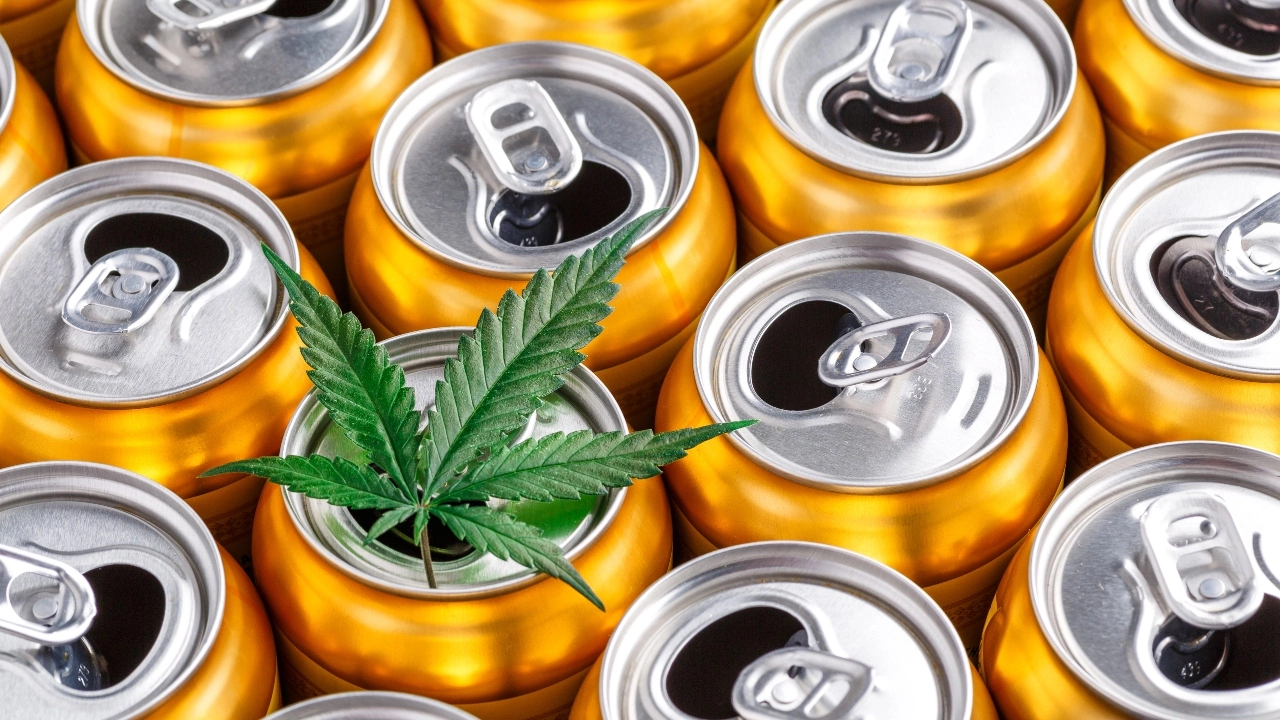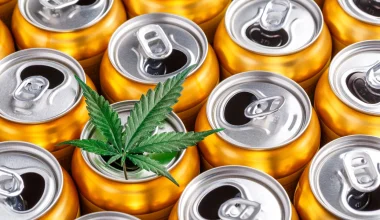The cannabis beverage industry is moving beyond traditional ready-to-drink 12-ounce cans to new formats like shots, sticks of powdered drinks and sampler packs.
The innovative new offerings are a hit with consumers and retailers – but they also reflect a broader shift in the cannabis beverage space, operators in the rapidly expanding product category say.
When cannabis drinks debuted, ready-to-drink (RTD) beverages in cans were the go-to format because they were familiar and easy to market, says Diana Eberlein, chief external affairs officer at California-based ingredient manufacturer Vertosa and founder of Coalition for Adult Beverage Alternatives (CABA).
“A cold can in the hand is something people recognize,” she said.
The move away from cans is driven by consumer behavior, retail constraints and the desire for product differentiation.
These are some of the topics that Eberlein and other leaders in the space will address on the “Next-Gen Infusions: Innovation, Compliance & the Future of Cannabis Beverages” panel at MJBizCon, scheduled for Dec. 2-5 at the Las Vegas Convention Center.
The rise of shots and stick packs along with THC-infused beverage cans
As the $1 billion market for THC-infused beverages matures, savvy brands are realizing that one size – or format – does not fit all.
Retailers – particularly convenience stores – have limited shelf space and are pushing for smaller or more compact products.
Shots and stick packs take up less room and are easier to stock. And shots, typically 2-ounce servings, have become a popular entry point for new consumers looking to try a product without committing to a full-sized beverage.
Liquor stores, on the other hand, are embracing larger formats like 750-milliliter bottles, which cater to consumers looking for a more premium, at-home experience.
“Once people try the product and realize they like it, they often move to larger formats for the better price point,” Eberlein said.
Stick packs, which contain powdered cannabis emulsions, are another emerging format. The single-serve packets can be mixed with water or other beverages, giving consumers the flexibility to customize their experience.
Stick packs are lightweight, easy to transport and have a longer shelf life than liquid products, making them an attractive option for both consumers and retailers. And sample packs follow a well-trod model successful in the alcohol industry.
Cannabis beverages are a friendly alternative for new consumers
But as cannabis beverages gain mainstream acceptance and become available at major multi-item retailers such as Target, Circle K and Total Wine, consumer education also remains a priority.
Many people are still unfamiliar with THC dosing or how the products differ from traditional edibles.
“Take my mom, for example,” Matthew Shirah, CEO of Atlanta-based beverage manufacturer Scofflaw Beverage Co., which makes beverages for brands like Wana Brands and Uncle Arnie’s.
“She’s not going to smoke a joint, but she’ll try a beverage,” he said. “It’s approachable and easy to consume.”
Looking ahead, Eberlein predicts a shift toward functional beverages with added cannabinoids and adaptogens that promise specific effects like focus or relaxation.
“Unless it’s brunch on Sunday, most people don’t drink alcohol at all times of the day, but with THC they do,” she said.
“They may use beverages throughout the day for different reasons – you may drink a beverage at noon for focus.”
How to ensure quality and consistency in cannabis drinks
The shift to new beverage formats presents challenges along with exciting opportunities.
Unlike shelf-stable alcohol, THC and other cannabinoids can lose potency quickly if the environment isn’t controlled.
And ensuring the THC is evenly distributed throughout the vessel is important to ensure that if two people are splitting a drink, one person doesn’t end up with all the effects.
“Consistency is key,” Eberlien said. “Flavor is king, but if you can’t deliver a consistent experience, the consumer isn’t going to stick with your product.”
And shelf life can vary for different cannabinoids, terpenes and beverage types, said Harold Han, co-founder and chief science officer of Vertosa.
The recently launched Vertosa Verify program is geared toward ensuring beverages meet seven steps in the supply chain that ensure consistency in cannabis beverages.
These are:
- Cannabinoid type
- Emulsion type
- Formulation
- Packaging
- Co-manufacturing
- Testing
- Distribution and retail
“Cannabis beverages are already in the mainstream, but more regulation is going to come down, so we need to prepare ourselves,” Han said.
Smaller and faster – the tech revolution in THC beverages
THC beverage manufacturing equipment has also improved, said Shirah of Scofflaw.
Another game-changer for Scofflaw has been the adoption of high-performance liquid chromatography (HPLC) equipment.
Popularized during the COVID-19 pandemic, the lab technology allows for in-house testing of THC dosages, enabling real-time adjustments.
“It allows us to move a little faster because we can test milligram dosages and make adjustments in-house,” Shirah said. “Every batch is a little bit different.”
“If you’ve got the HPLC in-house, you can move faster.”
Subscribe to the MJBiz Factbook
Exclusive industry data and analysis to help you make informed business decisions and avoid costly missteps. All the facts, none of the hype.
What you will get:
- Monthly and quarterly updates, with new data & insights
- Financial forecasts + capital investment trends
- State-by-state guide to regulations, taxes & market opportunities
- Annual survey of cannabis businesses
- Consumer insights
- And more!
Elevating cannabis drinks with flavor and form
Evan Eneman, co-founder and CEO of Iconic Tonics, focuses on creating products that resonate with consumers on a cultural and lifestyle level.
“We don’t build the technology itself, like emulsification,” he said. “We focus on the liquid, the design and the format of the product.”
This holistic approach has led to developments in flavors, packaging and form factors, all aimed at delivering a better consumer experience.
While many cannabis beverages stick to familiar profiles like blood orange or blue raspberry, Eneman sees and opportunity to push boundaries by offering flavors such as Bosphorus.
A take in a Middle Eastern flavor profile, Iconic Tonic makes the apricot-forward flavor with rose and simple syrup for the Klaus brand.
Down the road, Eneman sees cannabis drinks sold in the same type of bottles used by wine and spirit companies – and he sees THC beverages working alongside more traditional alcohol offerings.
“Beverages are showing up alongside beer, wine and spirits, not instead of them,” he said. “We don’t have to take over everything in their daily drinking habits. I see a symbiotic relationship.”
Margaret Jackson can be reached at margaret.jackson@mjbizdaily.com.
Medical Disclaimer:
The information provided in these blog posts is intended for general informational and educational purposes only. It is not a substitute for professional medical advice, diagnosis, or treatment. Always seek the advice of your physician or other qualified healthcare provider with any questions you may have regarding a medical condition. The use of any information provided in these blog posts is solely at your own risk. The authors and the website do not recommend or endorse any specific products, treatments, or procedures mentioned. Reliance on any information in these blog posts is solely at your own discretion.






